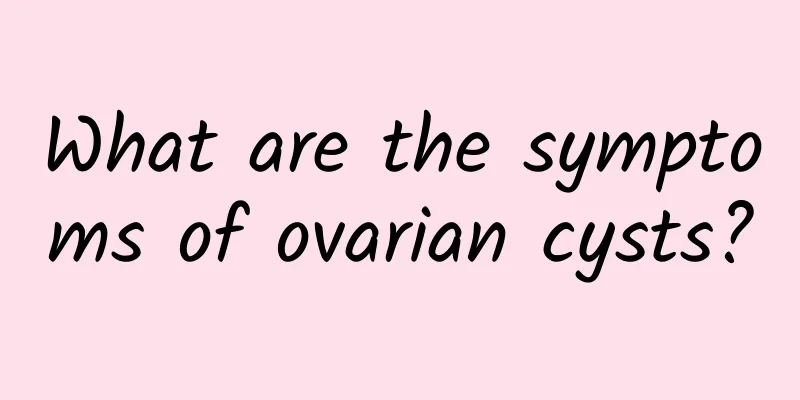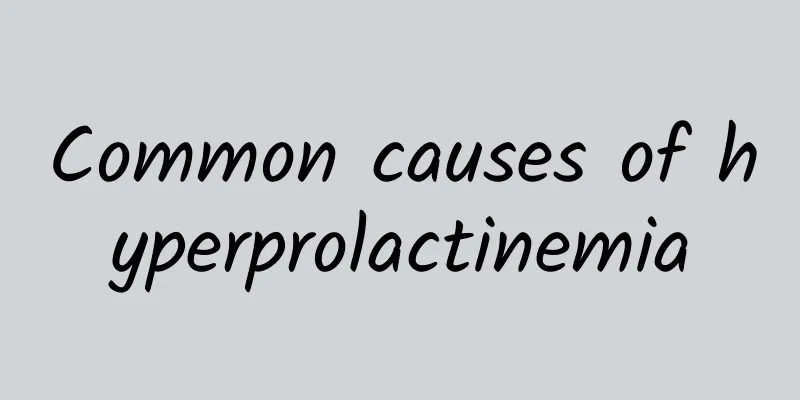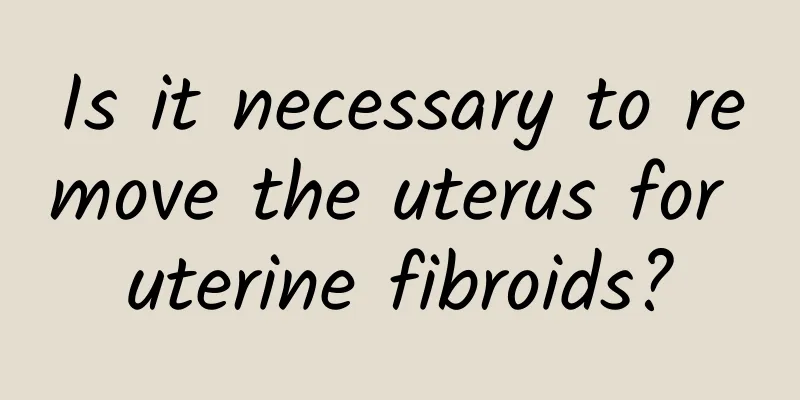What are the symptoms of ovarian cysts?

|
If ovarian cysts are not treated in time, severe ovarian cysts can lead to female infertility. Ovarian cysts are also a common gynecological disease. The occurrence of ovarian cysts should be taken seriously. So what are the symptoms of ovarian cysts? Next, we ask experts to introduce the symptoms of ovarian cysts. In medicine, ovarian cysts are a general term for true ovarian tumors and ovarian-like lesions, which are similar in appearance. True tumors can be benign or malignant, and both require surgical removal. The symptoms of ovarian cysts are as follows: 1. The symptoms of ovarian cysts are not obvious in the early stage. Patients with ovarian cysts are often found during gynecological examinations when they seek medical treatment for other diseases. Later, as the tumor grows, the patient will feel it. The symptoms and signs vary depending on the nature, size, development, and presence or absence of secondary degeneration or complications of the tumor. 2. Symptoms of ovarian cysts include lower abdominal discomfort, which is the initial symptom before the patient feels a lump in the lower abdomen. Due to the weight of the tumor itself and the influence of intestinal peristalsis and body position changes, the tumor moves in the pelvic cavity, pulling on its pedicle and pelvic funnel ligament, causing the patient to feel distension and falling in the lower abdomen or iliac fossa. 3. Increased abdominal circumference and abdominal mass These are the symptoms of ovarian cysts: they are the most common phenomena in the main complaint. The patient finds that his clothes or belts are too tight, and then notices that his abdomen is enlarged, or feels it accidentally in the morning, so he presses his abdomen and finds that there is a mass in the abdomen, plus abdominal distension and discomfort. 4. Abdominal pain is one of the symptoms of ovarian cysts. If the tumor has no complications, there is little pain. Therefore, if patients with ovarian tumors feel abdominal pain, especially if it occurs suddenly, it is mostly caused by the torsion of the tumor pedicle, or occasionally by tumor rupture, bleeding or infection. In addition, malignant cysts often cause abdominal pain and leg pain, and the pain often causes patients to seek emergency treatment. 5. Menstrual disorders are also symptoms of ovarian cysts. Some uterine bleeding is not endocrine, or it is caused by ovarian tumors that change the distribution of pelvic blood vessels, causing endometrial congestion; or it is caused by ovarian malignant tumors directly metastasizing to the endometrium. Menstrual disorders caused by endocrine tumors are often combined with other secretory effects. The above are the symptoms of ovarian cysts. I hope it will be helpful to you. If you have symptoms of ovarian cysts, please go to the hospital in time to avoid delaying the disease and causing serious harm. If you have any questions about ovarian cysts, please consult our online experts for answers. Ovarian cysts http://www..com.cn/fuke/ncnn/ |
<<: What are the categories of female vaginitis
>>: What are the ways to prevent ovarian cysts?
Recommend
What are the early symptoms of ectopic pregnancy?
If ectopic pregnancy is not treated in time, it m...
Are potato chips too tasty to quit? Nutritionists teach you these 3 tips to avoid getting fat
Walking into a store and seeing mountains of pota...
Burning fat done right? Exercising on an empty stomach and drinking coffee can help you lose weight and burn fat? 5 articles to help you solve the problem
Exercise can improve cardiopulmonary function and...
How to prevent different symptoms of vaginitis
Vaginitis is the most common gynecological diseas...
What are the symptoms of cervicitis and what medicine is good
Treatment for cervicitis requires antibiotics, an...
Can I have children with cervical warts?
Women who have cervical warts, especially those o...
Say no to morning jogging! 4 p.m. is the best time to exercise
Many people are used to jogging early in the morn...
Will a left ovarian cyst go away on its own?
Will a left ovarian cyst go away on its own? Left...
Get rid of the big food monster after the New Year! Nutritionist Zhao Hanying: 2 tips to regain your bird-like stomach
The longest 10-day Spring Festival holiday in his...
Is being easily sick due to a decrease in immunity? Follow the experts to eat the right 10 foods to improve your immunity
In spring, when the seasons change, the weather f...
How serious are ovarian cysts?
Ovarian cysts are classified as tumor diseases in...
Many ways to care for vulvar leukoplakia
Among gynecological diseases, vulvar leukoplakia ...
Is cervicitis serious?
Cervicitis refers to an inflammatory disease of t...
Li Ying loves eating grapes to promote metabolism and weight loss! Grapes with meals and exercise for 30 minutes will double the effect
Grape is a very popular fruit. It not only tastes...
How much does it cost to have a painless abortion?
How much does it cost to have a painless abortion...









